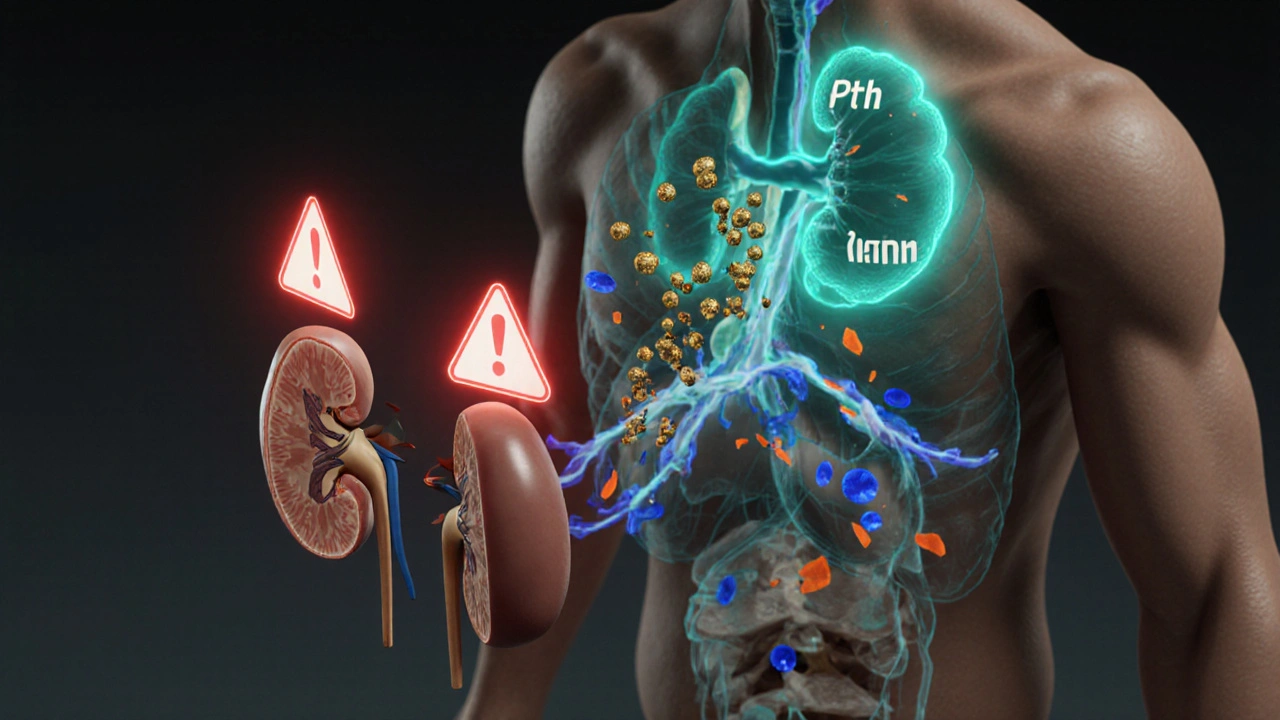Chronic Kidney Disease
When dealing with Chronic Kidney Disease, a long‑term loss of kidney function that impairs waste removal and fluid balance. Also known as CKD, it demands close monitoring of blood pressure, blood sugar, and drug dosing. In everyday life, CKD often shows up alongside Hypertension, high blood pressure that can accelerate kidney damage and Diabetes, persistent high blood glucose that harms small blood vessels in the kidneys. Both conditions create a feedback loop: hypertension speeds up CKD progression, while CKD can worsen blood‑pressure control.
Key Factors Linked to CKD
The body’s response to reduced kidney function often triggers Anemia, a shortage of red blood cells caused by decreased erythropoietin production. Anemia fuels fatigue and can mask other CKD symptoms, making early detection harder. At the same time, many common drugs—like certain steroids, antihistamines, or blood‑pressure pills—need dose adjustments when kidneys can’t clear them efficiently. Proper Medication Management, tailoring dose and timing to kidney function reduces the risk of side‑effects such as skin thinning from steroids or dangerous drug interactions with alcohol.
Understanding these connections helps you act before problems snowball. For instance, tracking blood pressure trends can flag worsening CKD early, while regular lab checks for hemoglobin catch anemia before it impacts daily energy. Adjusting doses of medications like metformin, ACE inhibitors, or diuretics based on eGFR numbers keeps treatment effective without overloading the kidneys. This approach mirrors the advice found in our collection of medication guides—whether you’re looking at safe steroid use, muscle‑relaxant alternatives, or affordable generic drugs.
Overall, managing chronic kidney disease means juggling several health pieces: controlling hypertension, keeping diabetes in check, watching for anemia, and tweaking medication plans. Below you’ll find a curated set of articles that break down each of these topics, give practical tips for safe drug use, and explain how lifestyle choices like quitting smoking can protect both heart and kidneys. Dive in to see how these insights can fit into your own health routine.
- October
17
2025 - 5
Secondary Hyperparathyroidism and GI Problems: What’s the Link?
Explore how secondary hyperparathyroidism triggers nausea, constipation, and other gut problems, and learn practical steps to manage both the hormonal disorder and digestive health.
Read More